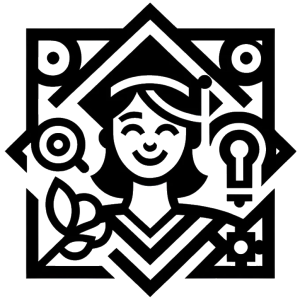After graduating from high school, I was unsure of what to do next. Despite numerous career fairs and internships, I simply had no plan. While strolling through the city, I saw a book with an intriguing cover titled “We Call It Work” by Lobbo in the window of Bukowski’s bookstore. It piqued my curiosity, and I bought it. It was indeed the first book I had ever purchased voluntarily. Afterwards, I read Pollmer’s “Prost Mahlzeit!”, Hawking’s “A Brief History of Time,” and also “Moby Dick,” indirectly recommended by Captain Jean-Luc Picard. By the time I got to Joyce’s “Ulysses,” I realized there was no book I couldn’t read or wasn’t allowed to. I didn’t have to heed educational recommendations, and the world of literature was open to me.
I read every book and most articles from start to finish. Driven by a need to share, I wanted to tell friends or acquaintances about each reading, yet I often had only a vague idea of the content and couldn’t provide concrete information about the main thoughts or problems. It was a very poor ratio of time invested in reading to what remained in thought.
When I was feeling very low psychologically some time later, for the first time, I didn’t turn to drugs but instead cleaned my room, bought an architect’s lamp with daylight, completely cleared my desk, and spent many weeks every evening and often deep into the night alone, surrounded by darkness, only in the company of the author’s thoughts and a fruit fly attracted by the daylight lamp.
The author whose thoughts I had probably spent a thousand hours pondering was Kafka. A work colleague and good friend lent me “The Trial” and promised I wouldn’t regret it. After reading a few pages, I knew I would return the book and thank him for the recommendation. Then I also bought the other two novel fragments, as a trilogy of solitude, and immersed myself in his narrated world. I read almost all of his stories, letters, diaries, official writings, and the three-volume comprehensive biography by Stach.
I read excessively, completely immersed in the narrated world, and found reading to be simply a delight. In school, he had been at best indifferent to me, but rather the analyses of his texts had been a torment, which is why I probably suppressed those memories. Analytical reading had almost ruined him for me.
Several years later, I studied philosophy at FernUni Hagen and was confronted with an unprecedented large and dense amount of text that I could not manage. After 13 years of prior schooling, it became clear to me that I couldn’t actually read. Here one can illustrate the difference between word and concept well: The term “reading” has many meanings, one of which refers to elemental reading as the ability to read any combination of letters, thus words, without moving the lips, and I could do that. The subsequent levels of reading, such as scrutinizing, analytical, and synoptic reading, I barely mastered.
Only by chance, out of necessity or the need to escape, did I read Kafka properly—quickly and immersively. According to school, I would have otherwise taken him on sentence by sentence again. I was also accustomed to reading everything from beginning to end and not first checking or skimming. And the fact that after reading a book, I didn’t mentally own it because I read without a pencil and without notes or markings was probably the worst mistake.
I wish I had known the book “How to Read a Book” by Adler and Van Doren in school or at least right afterwards. It was this timeless guide that provided me with a completely new perspective on the art of reading, addressed experienced problems, and demonstrated solutions.
The good news is that the rules for good reading, which is as difficult as good writing, are manageable and relatively quick to learn. Starting with fiction, they would be: Surrender to the effect; do not search for terms, assertions, or arguments; consider truth and logic as irrelevant; become at home in the narrated world and observe. I must understand the experience the author intended to give me before I criticize him. Beautiful, narrative literature should be read quickly and fully absorbed; and finally, we should read poems in one go and as loudly as possible.
To be continued!
The following book formed the basis of my considerations: Adler & Van Doren – “How to read a book” (1972)
Quiz
Exercise
Consider reattempting to read an unpopular classic from your school days, paying attention to the briefly mentioned reading rules and the method used by the blog author during his difficult life phase.


Leave a Reply